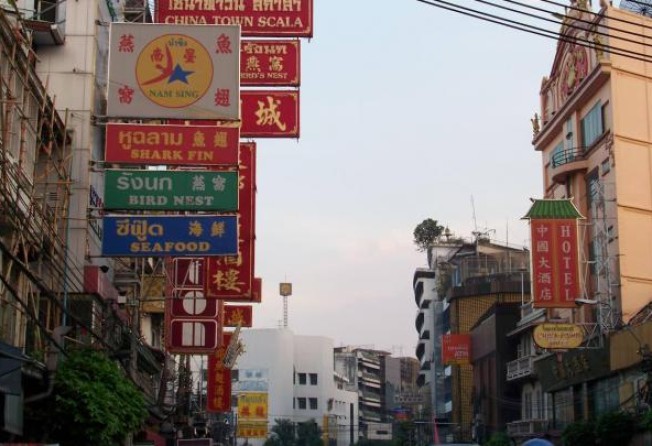City scope: transition town
Violet Law in Bangkok

As one of the oldest such neighbourhoods in the world, Bangkok's Chinatown is a mass of contradictions. It is at once cohesive and sprawling. Its denizens are assimilated into mainstream society but also maintain a culture apart. Its heritage has been subject to both the blessings of conservation and threats of demolition.
Now, duelling sentiments are more in evidence than ever as this little enclave - older than the Thai capital itself - faces being smothered by high-rises and hollowed out an extended subway line.
In one corner are traditional Chinese businesses passed down through generations, some operating out of dilapidated shophouses. After nearly a century of modest existence, these businesses are existing on month-to-month leases from the government, which owns most of the land in Chinatown.
"There is no other place like this," says Sirinee Urunanone, whose parents opened a picture frame shop here 40 years ago. Born and raised in Chinatown, Urunanone still speaks the native dialect of her Guangdong-born grandparents. She and other residents have formed a concern group to save shophouses threatened by the bulldozers.
In the other corner are those who have long dreamed of better transport links and investment to attract more business.
Given their centuries-old history, the Chinese in Thailand have extended their influence beyond mere business. Among high-level government officials, those with Chinese heritage are well-represented. The Siamese royals have even produced a king or two with Chinese blood.
When General Taksin (not to be confused with former prime minister Thaksin Shinawatra) abandoned the embattled ancient capital of Ayutthaya, circa 1767, his choice of relocation was said to have been influenced by his affinity with the existing Chinese settlement in Bangkok. Born to a Chinese father but adopted by a Thai government minister, Taksin established the new Thai capital here, but uprooted the then Chinatown to its current location, in Yaowarat.
In the late 1820s, King Rama III hired labourers to build a fortress and dig a long canal, keeping many of the 2,000 or so Chinese immigrants who arrived each year employed. However, mounting fears of Chinese dominance of business and politics resulted in restrictive immigration laws being enacted in 1929. But that hasn't stopped the tide.
Today, 15 million Thais - more than one in five - claim Chinese ancestry. Eight associations, representing those with roots in as many Chinese provinces, are active, according to Raymond Chow, head of the Kwong Siew Association of Thailand. Chow emigrated from Hong Kong a few years ago and makes no bones about where he stands on Chinatown's future.
"We should get with the times," he says.